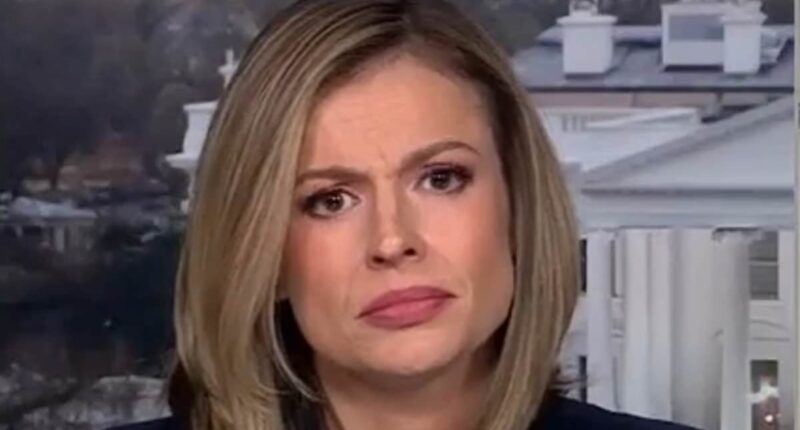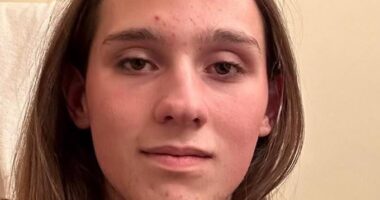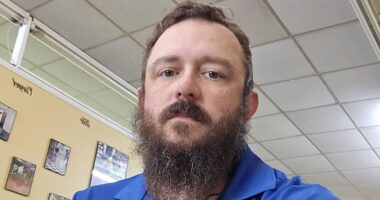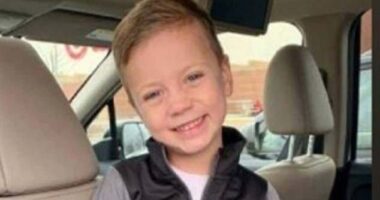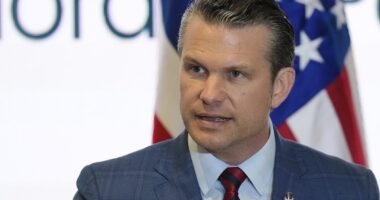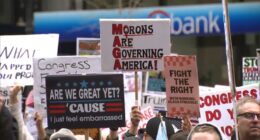
There was a tense interaction between CNN anchor Pamela Brown and an aide to newly appointed health secretary Robert F Kennedy Jr. regarding his priorities for the administration.
During a discussion about the increase in measles cases, Calley Means, an advisor to RFK Jr., interrupted Brown while she was speaking to infectious disease specialist Dr. Paul Offit.
‘Pamela, with respect, why aren’t you asking me about the fact that 50 per cent of teens have obesity,’ he said.
Brown responded by asserting her intention to ask questions and cover a broad range of healthcare topics involving both guests.
She noted that she’s been ‘at the forefront of covering a lot of these issues.’
‘Please don’t make that claim that I’m not asking the right questions… I do want to talk about obesity. Don’t… claim that I’m not asking about important things because I’ve covered that on this show.
‘I have other questions for you, but we’re talking about this,’ Brown said, attempting to turn her attention back to Dr Offit.
But Means continued to rally against any discussion of the measles outbreak in Texas, where 58 cases have been diagnosed.
‘Day after day after day, Pamela, it’s breathless coverage of five measles cases,’ Means said.
‘Why aren’t we asking why 16 per cent of COVID deaths worldwide were Americans when we’re only 4 per cent of the world’s population, because the CDC said our immune system-‘ before being cut off.
As both Dr Offit and Brown pulled faces at Means’ comments, the latter attempted to interject, but she was once again cut off by RFK Jr’s adviser, who snapped: ‘No, it is related, Pamela, let me say why.
‘The entire coverage of Bobby Kennedy is around measles… Bobby Kennedy has said one thing about vaccines and one thing only: that they should be studied like any other product.’
He went on to say that Kennedy has ‘written multiple books, not about being anti vax, but about having good science,’ prompting another swift rebuke.
‘I think it is fair to say, given his history and his past remarks, though, that he is at the very least, a vaccine skeptic. All right? A vaccine skeptic, it’s fair to say.’
Means denied the term, arguing that he sees Kennedy as ‘a pro science advocate.’
Kennedy himself shared his top priorities in his new role just yesterday, during his first speech as an official member of Donald Trump’s cabinet as the secretary of the Department of Health and Human Services.
He said he hopes to focus on tackling the health epidemic nationwide and scrutinizing every aspect of Americans’ medicines, drugs and food.
The new HHS head talked about his belief that vaccines led to a spike in childhood autism cases in the U.S., and said that he will welcome ‘unbiased science’ processes to investigate that claim.
Kennedy listed the many areas he wants HHS to ‘scrutinize,’ specifically standards for foods, medicines, drugs and pesticides that he feels have been overlooked or given a pass in the past.
‘Some of the possible factors we will investigate were formerly taboo or insufficiently scrutinized – the childhood vaccine schedule, electromagnetic radiation, glyphosate, other pesticides, ultra-processed foods, artificial food additives, SSRI and other psychiatric drugs, PFAs, PFOAs, microplastics,’ Kennedy said. ‘Nothing is going to be off limits.
‘Whatever belief or suspicion I have expressed in the past, I’m willing to subject them all to the scrutiny of unbiased science,’ he continued. ‘That is going to be our template: unbiased science.’
‘That’s something that will make us all proud of this agency and of our role in restoring American health.’
Kennedy’s appointment and a DOGE effort to purge departments under his remit have caused a stir at high levels, with the head of the Food and Drug Administration’s food division resigning on Monday after 89 staffers at his agency were laid off.
Jim Jones cited ‘indiscriminate’ cuts as part of the reason for his decision to step down.
Reports also emerged on Tuesday revealing the Centers for Disease Control’s Acting Principal Deputy Director Nirav Shah is also stepping down.
Last week, 3,600 newer HHS employees who were still in their probationary period were laid off.
The firings were primarily among staffers at the CDC and the National Institutes of Health.
